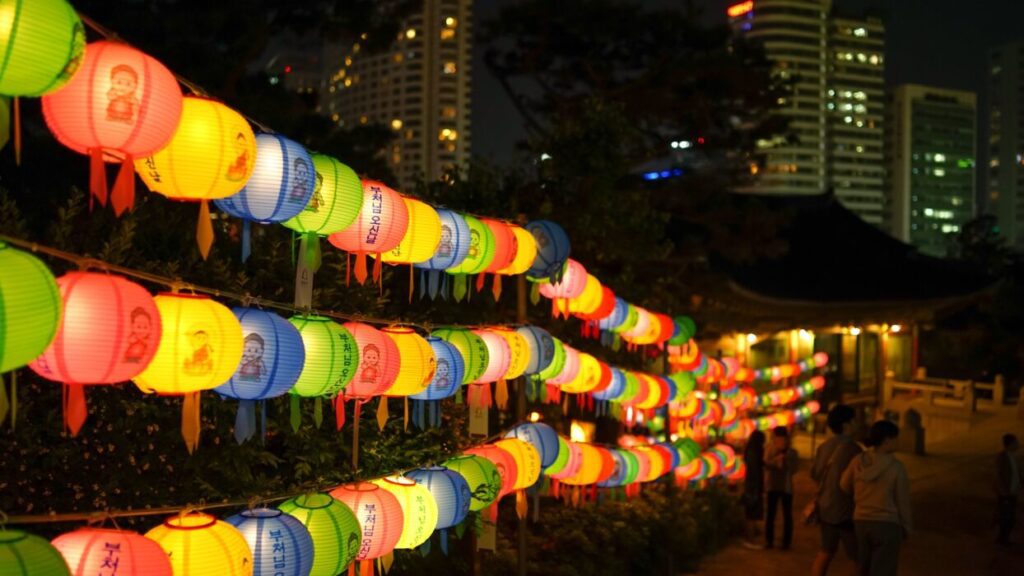South Korea seamlessly blends modernity with tradition, offering a captivating travel experience. Seoul’s futuristic skyscrapers coexist with ancient palaces like Gyeongbokgung, showcasing the country’s rich history. Insadong in Seoul blends traditional hanbok stores with trendy cafes and art galleries. Busan’s coastal city juxtaposes modern skyline with ancient temples like Beomeosa. Gyeongju, the ancient capital, boasts UNESCO World Heritage Sites and traditional hanok houses. Jeju Island offers stunning natural attractions alongside traditional villages. South Korea’s dynamic mix of modernity and tradition makes it a must-visit destination for travelers interested in history, culture, or natural beauty.
Uncovering the Dynamic Mix of Modernity and Tradition in South Korea
Introduction
South Korea is a country that seamlessly blends the old with the new, offering visitors a unique and captivating travel experience. From its bustling metropolises to its serene temples, South Korea is a country of contrasts that will leave you in awe. In this article, we will explore the dynamic mix of modernity and tradition in South Korea.
Seoul: A City of Contrasts
The capital city of Seoul is a perfect example of South Korea’s blend of modernity and tradition. On one hand, you have the futuristic skyscrapers and high-tech gadgets that make Seoul one of the most technologically advanced cities in the world. On the other hand, you have ancient palaces like Gyeongbokgung and Changdeokgung, which offer a glimpse into Korea’s rich history.
Insadong: Where Tradition Meets Modernity
Located in the heart of Seoul, Insadong is a neighborhood that perfectly encapsulates the dynamic mix of modernity and tradition in South Korea. Here, you will find traditional Korean hanbok stores alongside trendy cafes and art galleries. The bustling streets of Insadong are a hub of activity, with street vendors selling traditional Korean snacks and performers showcasing traditional music and dance.
Busan: A Coastal Gem
Located on the southeastern coast of South Korea, Busan is a coastal city known for its beaches, temples, and vibrant culture. The city’s modern skyline is juxtaposed with ancient temples like Beomeosa and Haedong Yonggungsa, providing visitors with a taste of both the old and the new. Busan is also home to Haeundae Beach, one of the most popular beaches in South Korea, where visitors can relax on the sand or enjoy water sports.
Gyeongju: The Ancient Capital
Known as the “Museum without Walls,” Gyeongju is a city steeped in history and tradition. As the ancient capital of the Silla Kingdom, Gyeongju is home to numerous UNESCO World Heritage Sites, including Bulguksa Temple and Seokguram Grotto. The city’s traditional hanok houses and royal tombs provide a glimpse into Korea’s storied past, while the bustling markets and vibrant cultural scene showcase the country’s modernity.
Jeju Island: The Island of Beauty
Located off the southern coast of South Korea, Jeju Island is a natural wonderland that offers visitors a mix of modern amenities and traditional culture. The island is home to stunning natural attractions such as Hallasan, South Korea’s highest peak, as well as traditional villages and cultural sites like Seongsan Ilchulbong and Manjanggul Cave. Jeju Island’s unique blend of modernity and tradition make it a must-visit destination for any traveler.
Conclusion
South Korea is a country that effortlessly blends the old with the new, offering visitors a dynamic mix of modernity and tradition. From the bustling streets of Seoul to the serene temples of Gyeongju, South Korea has something for everyone. Whether you’re interested in history, culture, or natural beauty, South Korea is sure to leave you in awe with its unique blend of modernity and tradition.
